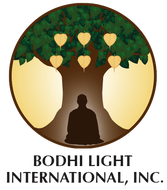|
There are three overlapping aspects of healing:
I grew up with a penchant for Chinese Gongfu movies. To this date, there are still some cable channels that specialize in showing such movies.
Their plot is typically simplistic. The good guys have a martial arts school in a small town. The bad guys show up, thrash the dojo, kill the head master and seriously injure the hero who barely escapes with his life. He nurses his wounds, swears revenge, and refines his gongfu skills. He appears from his hideout, thrashes the bad guys’ place, and the bad dudes all die a gory death. The appeal of such movies lies in their simple plot. As I watched, I quietly approved of the revenge: it seemed just and right that good won over evil, even though the bad guys frequently suffered painful deaths. Intuitively, it seems right that there should be payback for doing evil and/or committing offenses. Such is the law of cause and effect: inflict pain and suffering and thou shalt endure pain and suffering, destroy and thou shalt be destroyed. Now that I’ve become a left home person, I encounter many people who came to me because they have had illnesses that were incurable. It seems that going to the temple is one of the last stops in their desperate search for healing. I tend to take the opportunity to talk to them about the law of cause and effect. I try to explain to them that from the Buddhist perspective, sickness is retribution for offenses committed in the past. For example, kill a rabbit and you must undergo the equivalent pain and suffering that you inflicted on that innocent animal. After all, doesn’t it seem fair to you? Remember those Chinese gongfu plots? Kill and destroy and it’s just and right that you suffer similar destruction and death! There are three overlapping aspects of healing: 1. From the Western Medicine Perspective (healing 1): The Western medicine specializes at dissecting illnesses and removing the defective parts. They excel at treating symptoms of diseases. No matter how skilled they become at locating and isolating the causes of problems, their approach is still limited in effectiveness. That is why, when combined with the Eastern medicine, their healing effectiveness drastically increases. 2. From the Eastern Medicine Perspective (healing 2): Healing has a more systemic perspective (the extra dimension “squares” it). The Eastern medicine looks at illnesses as imbalances of the body. While they may not be as good as the Western medicine in local treatment, they tend to be more effective at prevention and comprehensive healing. For example, when engaged in a battle, don’t we have battle fronts and headquarters? If we focus only on the front line, we can be assured that the enemy will return. Or, it may appear that we are winning the battle, but in fact, the enemy is simply shifting its forces in a flanking effort to win the bigger war. One superior aspect of the Eastern medicine approach is the concept of Qi: that life force that flows through clearly defined energy channels inside our bodies. Illnesses are caused by that Qi being blocked in various places. This is why one can be healed through the unblocking of blockages through herbal medicine, acupuncture, acupressure, or exercise. While the combined approaches of Eastern and Western medicine offer tremendous advantages, they still cannot handle mental illnesses. 3. From the Buddhist Perspective (healing 3): This is because neither of the above approaches can get to the root of the problems: they still are stuck at manifestations and symptoms. Many healers fail to realize that illnesses are caused by ghosts and spirits (yin world). These entities invade our bodies, causing Qi energy to be blocked, which then manifests as deterioration of the specific body parts. In other words, removing the defective body part or unblocking the Qi alone does not fix the root source of the problem. When Great Master Xuan Hua was alive, he could provide healing by chasing away these ghosts and spirits. People with incurable diseases would be healed with his help. My late grandmother was also healed by him after the Western and Eastern medicine doctors had given up hope for her recovery. That is why, when the Venerable Xuan Hua was still in the world, many people would seek him out for help. By the time he left us, his body was thus riddled with diseases and he was in great agony. This is probably because people did not realize that when he agreed to help, he basically meddled in their affairs and thus had to die on their behalf. After all, someone has to die or suffer in order for a karmic debt to be settled! At any rate, what does this have to do with healing your sicknesses?
On the other hand, there are many who refuse to believe in ghosts and spirits. They would not be willing to try it out even at the cost of their own lives and/or resign themselves to their state of misery and sufferings. Perhaps they too insist on continuing to inflict pain and suffering on their loved ones to settle past debts. |
|
RELATED LINKS© 2010 – 2023 Chanpureland.org
|
SubscribeJoin our mailing list today!
|

 RSS Feed
RSS Feed